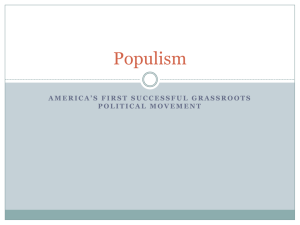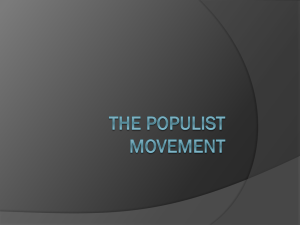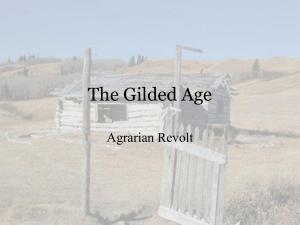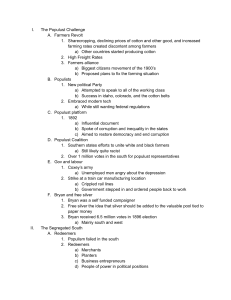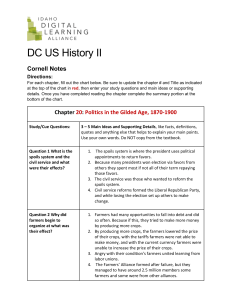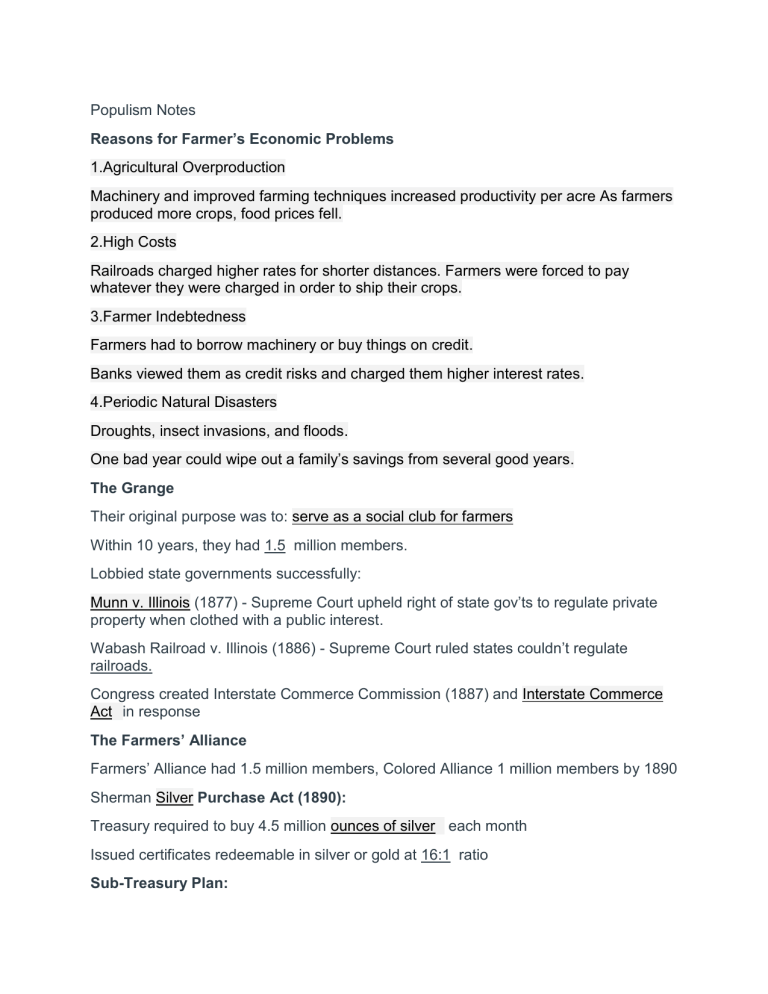
Populism Notes Reasons for Farmer’s Economic Problems 1.Agricultural Overproduction Machinery and improved farming techniques increased productivity per acre As farmers produced more crops, food prices fell. 2.High Costs Railroads charged higher rates for shorter distances. Farmers were forced to pay whatever they were charged in order to ship their crops. 3.Farmer Indebtedness Farmers had to borrow machinery or buy things on credit. Banks viewed them as credit risks and charged them higher interest rates. 4.Periodic Natural Disasters Droughts, insect invasions, and floods. One bad year could wipe out a family’s savings from several good years. The Grange Their original purpose was to: serve as a social club for farmers Within 10 years, they had 1.5 million members. Lobbied state governments successfully: Munn v. Illinois (1877) - Supreme Court upheld right of state gov’ts to regulate private property when clothed with a public interest. Wabash Railroad v. Illinois (1886) - Supreme Court ruled states couldn’t regulate railroads. Congress created Interstate Commerce Commission (1887) and Interstate Commerce Act in response The Farmers’ Alliance Farmers’ Alliance had 1.5 million members, Colored Alliance 1 million members by 1890 Sherman Silver Purchase Act (1890): Treasury required to buy 4.5 million ounces of silver each month Issued certificates redeemable in silver or gold at 16:1 ratio Sub-Treasury Plan: Farmers could store harvested crops in gov’t warehouses Would get gov’t loans for up to 80% of value at 1% interest in new legal-tender notes The People’s Party Leader & platform writer was Ignatius Donnelly Candidate James B. Weaver had been Greenbacks’ candidate in 1880 election Party represented the “common man” Reached out to blacks & labor, esp. Western miners Use your Device to research 8 items from the Populist Party Platform (1892) The Populist Party Platform (1892) Unlimited coinage of silver Term limits for President Government ownership Immigration restrictions Direct election of senators Secret ballot to protect voters Graduated income tax Shorter work day The Democratic-Populist Fusion, 1896 Democrats nominated William Jennings Bryan His “Cross of Gold” speech praised farmers Populist vote for Bryan with Democrats William McKinley, pro-business candidate, won a narrow margin Election of 1900 and Effects ________________ defeated Bryan again Ultimately ended the _______________ party New gold discoveries, higher farm ____________, and ________________________ weakened national interest in a separate farmer’s party Legacy of Populism ___________ parties still have an impact on the political process They provide an outlet for minorities to voice ________________ and generate new ___________ Many proposals and ______________ generated by third parties have been adopted by the larger parties and turned into law.
